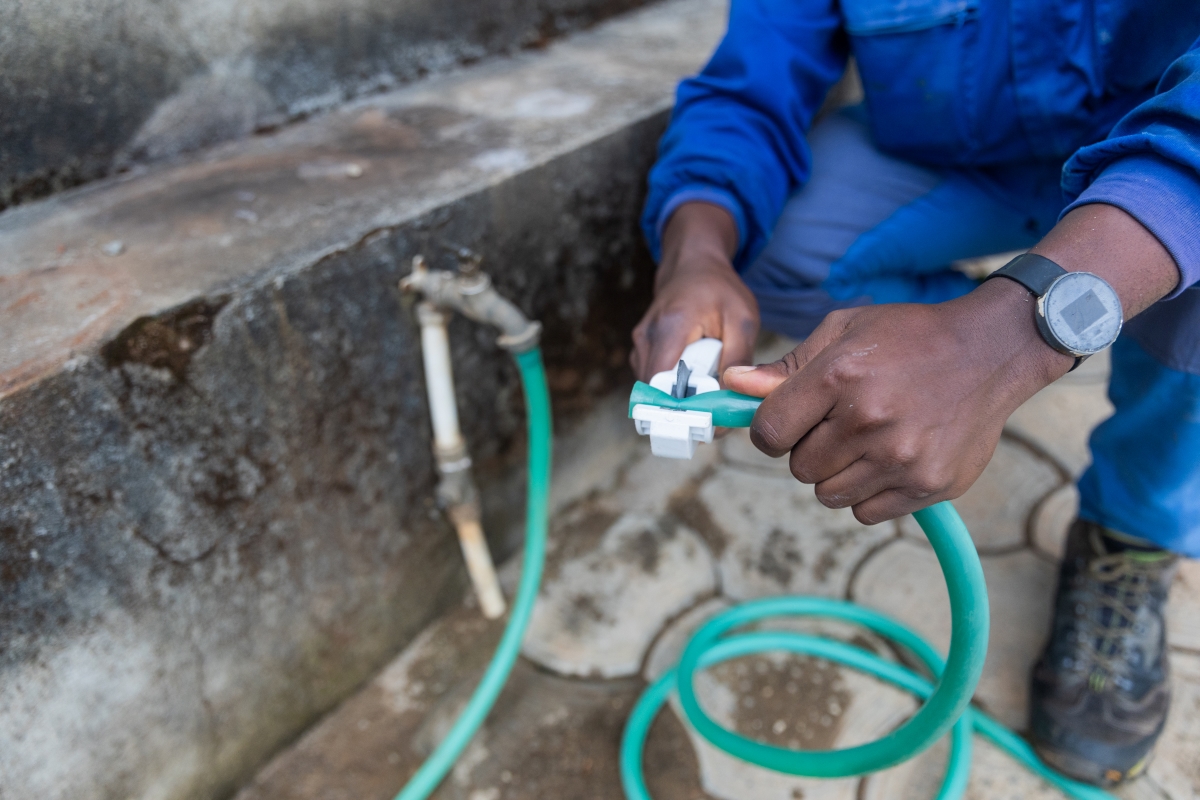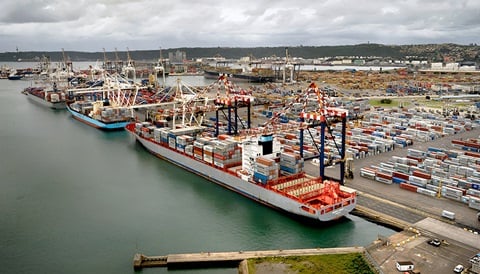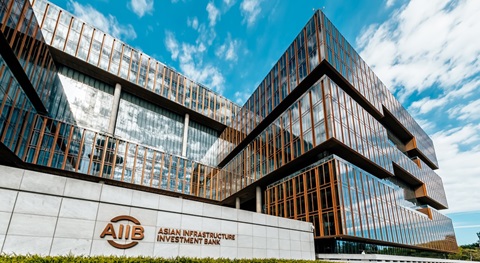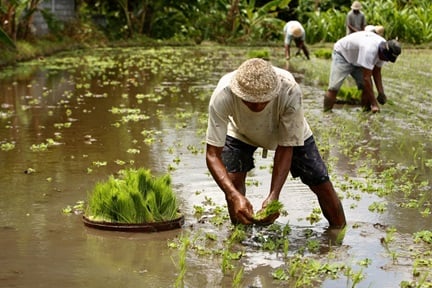South Africa water crisis is a problem for business but also an opportunity
Creaky infrastructure results in the leak of nearly half of all piped water
 If the shortage of electricity was not enough of a problem to deal with, businesses in South Africa now face a new problem - water. South Africans are losing access to water for extended periods. When water is available, its quality falls below standards considered safe for human consumption. This escalating challenge not only threatens the well-being of millions but also poses risks to key economic sectors, including mining and manufacturing.
If the shortage of electricity was not enough of a problem to deal with, businesses in South Africa now face a new problem - water. South Africans are losing access to water for extended periods. When water is available, its quality falls below standards considered safe for human consumption. This escalating challenge not only threatens the well-being of millions but also poses risks to key economic sectors, including mining and manufacturing.
In recent months, Johannesburg, South Africa's largest city, has grappled with frequent planned and unplanned water outages, affecting areas from townships to upscale suburbs. The root causes include aging water infrastructure and insufficient maintenance. In some neighbourhoods, water pipes are over 70 years old, leading to rust and breaks that cause substantial water leakages. The funds available to the City of Johannesburg for water maintenance is insufficient. Currently, only about 30km of pipelines are upgraded each year, well below the required 200km. Moreover, when contractors are eventually dispatched to repair the pipes, the lack of city oversight often results in substandard work, meaning repairs are short-lived. Residents pay for various services, including water, sewage, and electricity, but their contribution is not ‘ring-fenced’ in the budget – thus allowing other projects to compete for available financial resources.
The lack of maintenance and subpar service delivery extend beyond Johannesburg. Water services fall under local government jurisdiction, and the effectiveness with which municipalities fulfil their responsibilities varies significantly. A recent audit by the South African Department of Water and Sanitation reveals concerning statistics: nearly half (46%) of water supply systems pose serious health risks from pathogens; over two-thirds (67.6%) of wastewater treatment facilities are near failure; and more than 47% of clean, treated water is either lost through leaks or unaccounted for.
Insufficient bulk water supply from dams and reservoirs also exacerbates water issues in cities such as Johannesburg and Durban. For example, the second phase of the Lesotho Highlands Water Project – a multinational initiative aimed at supplying water to South Africa's Gauteng province and generating hydro-electricity for Lesotho – is eight years behind schedule, with its completion now anticipated in 2028. The eight-year delay roughly overlapped with a period in which Gauteng’s population surged by 3m, growing from 12m to 15.1m.
It is not just households that are affected by the water crisis. The impact is being felt by businesses too. Sectors most at risk are the mining and manufacturing sectors. Water is a critical input throughout the value chain of the mining industry, which employs 477,000 individuals. Among its many uses, water is utilised for drilling, cooling, dust management, and mineral separation. For instance, Anglo American Platinum faced a five-day water interruption at its Rustenburg operations, resulting in a direct 9% drop in production and sales for the third quarter of 2023.
There have been calls for increased private sector participation in water supply and sewage treatment. This approach would allow private companies to step in to finance, develop, and manage water infrastructure, enabling the state to divert resources to other critically needed areas. Singapore-listed Sembcorp has been involved in some of the few private water and sanitation ventures in South Africa. After buying out the previous shareholder in 2010, Sembcorp became the owner of two projects, one in the City of Mbombela and the other in the iLembe Municipality, serving Ballito and surrounds. These projects were recognised for their excellence in water supply and sewage treatment until 2018, when Sembcorp sold its stakes to a South African investment firm, as the company shifted its focus to the energy sector.
Infrastructure investor Gaia Fund Managers earlier this month acquired a majority stake in Oasis Water, a provider of refill water and other bottled water products. According to Hendrik Snyman, chief investment officer at Gaia, the firm recognised prospects to invest in the water sector because of the growing population. However, opportunities in the sector are scarce, largely because most of it is run by the government. Gaia’s research revealed that at the current public investment levels in water and sewage infrastructure, the system is likely to collapse in many places which would benefit private companies like Oasis by reducing competition from the public sector. He added that going forward, Oasis will focus on areas where public water provision is failing.
While South Africa's water crisis remains severe, there are signs of progress in certain areas. The completion of the second phase of the Lesotho Highlands Water Project is anticipated to alleviate some of the strain on water systems. Furthermore, the establishment of a National Water Resources Infrastructure Agency, which will make it easier for the country to secure private sector financing for dam construction, is anticipated to be approved by parliament soon. Legislation aimed at requiring municipalities to professionalise their water services functions is also in the works.
References
‘Water shortages threaten South African businesses’, Daily Investor, 08 June 2023
‘South Africa’s water crisis threatens mining industry’, Daily Investor, 04 November 2023
‘Water crisis in South Africa: damning report finds 46% contamination, 67% of treatment works near to breaking down’, The Conversation, 07 December 2023
‘Proudly South African with an international flair’, Infrastructure News, 14 December 2023
‘SA mining employment rises in 2023 while exports slide on Eskom and Transnet crisis’, Daily Maverick, 05 February 2024
‘Johannesburg’s water crisis is getting worse – expert explains why the taps keep running dry in South Africa’s biggest city’, The Conversation Africa, 27 February 2024
‘BLSA’s CEO’s Weekly Newsletter – GDP figures are a very loud clarion call to action’, Business Leadership South Africa, 11 March 2024
‘South Africa’s infrastructure crisis deepens as Johannesburg taps run dry’, Financial Times, 15 March 2024
‘BLSA’s CEO’s Weekly Newsletter – Skills development is needed in municipalities to properly maintain systems’, Business Leadership South Africa, 18 March 2024
‘Investor sees opportunity in South Africa’s troubled water sector’, How we made it in Africa, 20 March 2024
‘New National Water Resources Infrastructure Agency to 'reduce water-supply disruptions'’, Primedia Plus, 25 March 2024







